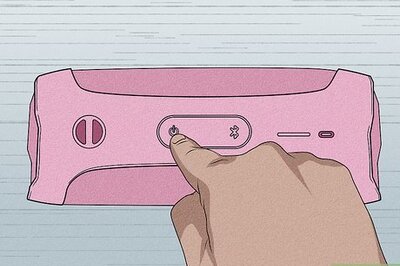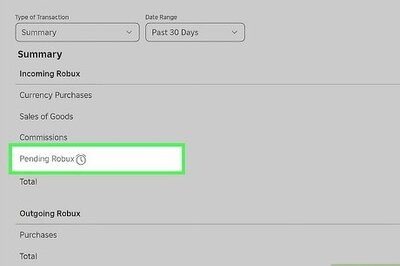
views
Avoiding Infected Water

Avoid swimming in warm freshwater areas. This amoeba is found in warm water, especially in areas where the water stays warmer for longer periods of the year. For instance, many freshwater lakes and rivers in the southern United States may have this amoeba. Hot spring water is also susceptible to this amoeba. Staying out of warm freshwater is the only sure way to avoid this type of infection.

Swim in water that it is at its normal levels. When water is too low, especially in the summer, it's more likely to develop harmful amoebas and bacteria like Naegleria Fowleri. If the water looks too low, skip swimming until it returns to normal. Similarly, if the water is stagnant and not moving, it's more likely to develop bacteria and amoebas.

Skip swimming in badly maintained swimming pools. Swimming pools that haven't been properly chlorinated could also contain the amoeba. If you notice a bad "chlorine" smell, slime, or murkiness, avoid swimming in that pool. However, contracting this amoeba from a swimming pool is relatively rare.
Preventing Infection While Swimming

Keep your head above water when you do swim. Since the amoeba enters the body through your nose, keeping your head out of the water will help prevent this infection, particularly in hot springs. Hot spring water is more susceptible to this amoeba, which is why you should be extra cautious in that situation.

Hold your nose closed with your fingers when going underwater. To keep water from entering your nose, hold it whenever you stick your head below the water. That way, you're less likely to have the amoeba enter this way. Grasp your nose firmly with your pointer finger and middle finger, pinching it tightly so water doesn't enter it.

Use a nose clip when swimming in warm waters. A nose clip holds your nose closed for you. It may be a better option than using your fingers if you're doing serious swimming in warm waters. Another option is a swimming mask that covers your nose, too.

Avoid stirring up sediment while swimming in lakes and rivers. These amoebas are more likely to reside in the sediment at the bottom of the river or lake. If you stir it up with your hands or kick it with your feet, you're more likely to encounter the amoeba in the water. If you do stir up sediment, get out of the water to prevent infection.
Choosing Water for Nasal Rinsing

Avoid using straight tap water for nasal rinsing. Sometimes, your tap water may be contaminated with this amoeba. While drinking it won't harm you, the ameba can enter your brain if you use the tap water for nasal rinsing without treating it first. If you're using a neti pot to clean your sinuses, take precautions, such as boiling, to treat the water. Similarly, if you're practicing ritual nasal cleaning for your religious faith, make sure precautions are being taken to provide clean water.

Boil tap water for 3 to 5 minutes before using it to clean your nose. If you want to use tap water, boiling it will rid it of the Naegleria fowleri amoeba. After boiling it, let it cool down to lukewarm before you use it. Store the boiled water in a cleaned, sealed container for up to a day.

Use a NSF 53 or NSF 58 water filter to remove the amoeba without boiling. These water filters can filter out certain parasites like the Naegleria fowleri. If you can't find one with those labels, look for one that says "absolute pore size of 1 micron or smaller." You can find these filters online or in home improvement stores.

Avoid regular bottled water because it may still contain this amoeba. If you don't want to mess with filtering or boiling the water yourself, you can buy water in the store. However, make sure the bottle says "distilled" or "sterile." Regular bottled water may be contaminated with this amoeba.




















Comments
0 comment